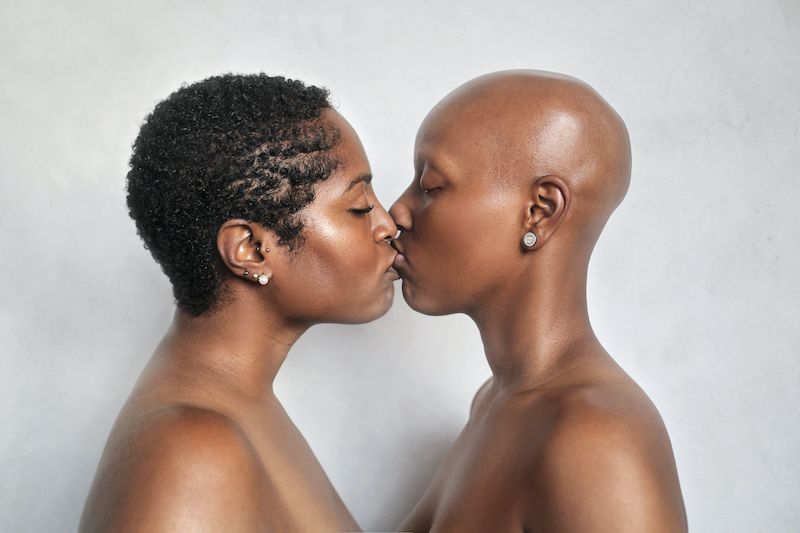Why Do Orgasms Feel Good? Sex and the Brain
If there’s one reason we love sex, it’s because it feels really, really great. Why is sex so addictive? Why do orgasms feel good? What is an orgasm? And what’s going on inside our brains when we’re getting busy?
If you’re curious about the human brain and ready to discover how much we’re at the mercy of our hormones, read on.

What happens during an orgasm?
Pioneering scientist Alfred Kinsey called orgasm “The expulsive discharge of neuromuscular tensions at the peak of the sexual response.” In less scientific words, an orgasm is the sudden, pleasurable release of sexual tension.
During sex, our body (mainly, but not exclusively, our genitals) works with our brain and nervous system in response to stimulation. This builds in intensity until it’s released in a sudden rush - a rush our brain identifies as very pleasurable.
Orgasms don’t always come from the genitals
It’s true. It’s possible to climax without even touching your private parts. “Nipplegasms”, an orgasm resulting from nipple and breast stimulation, aren’t so uncommon anymore.
Many people, including erotic hypnosis fans, rave about “touch-free orgasms”. In other words, orgasms that come from the mind and involve no physical stimulation whatsoever. Given that the brain is so important to orgasm, why can’t this be true?

What happens during sex? Pleasurable chemicals are released
Intercourse causes messages to be sent from our brain to our body. These are neurotransmitters, and they play a big part in our good, sexy feelings.
You may have heard of dopamine and oxytocin, but do you know what effect they have on your brain? Despite being the most talked about, these two certainly aren’t the only chemicals released during sex.
Let’s find out exactly what happens during sex. And why the simple act of two bodies rubbing together can have mind-blowing consequences.
Why do orgasms feel good? The effect of sex on the brain
Arousal increases activity in the limbic system
The limbic system is the part of the brain involved in behavior and emotional responses. Especially those related to survival, like feeding and reproduction. This system decides whether emotional experiences are good or bad.
Important parts of this system are the hormones we associated with sex: Dopamine, oxytocin, and serotonin.

During attraction and arousal, activity in the limbic system is heightened. During this time, dopamine and a similar hormone called norepinephrine are released. These elevate our mood and make us feel energetic, excited, and like our heart is racing.
Sex activates the reward system in our brains
Our brains’ reward center or reward system is the part of our brain that gets “switched on” by things we enjoy. When it gets “switched on”, our brain registers that the thing we’re doing is pleasurable, should be remembered and should happen again.
What happens during sex? This system gets activated in a big way. This is one of the reasons sex, drugs, and good food feel addictive.
The brain’s reward system is full of dopamine pathways
As you may know, dopamine is the “feel-good” chemical that’s released when our brain expects a reward. During sex, dopamine is spread along various major brain pathways, making us feel happy.

And want to have sex again the moment it’s over.
Sex decreases anxiety
Heard of the lateral orbitofrontal cortex? Don’t worry, we hadn’t either.
All you need to know is it’s the part of the brain responsible for reason and decision making. It becomes less active during sex, meaning we feel more relaxed and inhibited and less fearful and anxious.
What happens during an orgasm? PET scans taken at the point of orgasm show these reasoning parts of our brain shut down as our reward systems light up. The feeling that you’re on another planet when you orgasm makes sense.
Sex releases a lot of serotonin...
Why do orgasms feel good? Serotonin!
This chemical plays a big role in regulating our mood, emotions, social behavior, and sex drive. Increasing levels of this chemical have even been proven to help people with depression. Serotonin is an important part of why good sex makes us feel happy.

...and adrenaline
Which is otherwise called epinephrine. This chemical makes us feel exhilarated. Like we do when we’re intensely exercising or scared. Queue racing heart and heavy breathing.
And let’s not forget oxytocin: The “love hormone”
Why do orgasms feel good? Because humans crave emotional connection.
What happens during an orgasm? Oxytocin is released in a big way. It’s also released during childbirth and breastfeeding, as it helps emotionally bond mother and child.
When it explodes during sex, it gives you those lovey-dovey feelings of intimacy and closeness that make you feel like you could marry this person on the spot.

The rhythms of sex put you in an almost trance-like state
A 2016 study found that rhythmic movements during intercourse have a surprisingly big effect on brain waves and rhythms.
If you’re wondering, “why do orgasms feel good?” and you’re someone who does sport or plays an instrument, you’ll understand this one.
In the way that other repetitive, meditative activities, like dancing or playing music, positively impact our brain, so does sex. What happens during sex? Repeated movements relax our brains enough to climax and take us to an altered state of consciousness that lets us focus on the positive sensations.
Not only does sex feel good, but it’s good for our health
Seriously!
Yes, sex is a good cure for period pains or a headache. But it also boosts emotional well-being and brain activity. Meaning the more orgasms we have, the better our memory.

Does that mean you can replace studying with sex?
We’ll get back to you on that.









